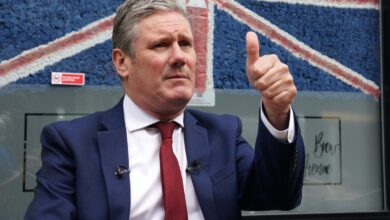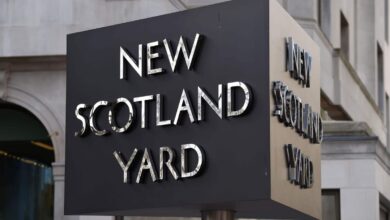Bank of England attacks government’s economic failure ahead of ‘austerity budget’

The Bank of England has criticised the disastrous mini-budget and a failure to spark economic growth since the Covid pandemic, as Jeremy Hunt prepares to unveil huge new spending cuts and tax hikes.
Ahead of Thursday’s landmark autumn statement – and after inflation hit a shock 41-year high of 11.1 per cent – its governor Andrew Bailey hit out at Britain’s “damaged reputation”, that had worsened the crisis.
Pointing to Kwasi Kwarteng’s vast unfunded tax cuts, Mr Bailey said he was told “we didn’t think the UK would do this” at the autumn gathering of the International Monetary Fund.
“It will take longer to rebuild that reputation than it will to correct the gilt curve [government borrowing costs]. We have to tread carefully,” he warned the Commons Treasury committee.
Mr Bailey also highlighted a “dramatic” contrast between the UK’s dismal recovery from the pandemic and growth in the eurozone and the US, which has left the UK economy still smaller than at the end of 2019.
“I’m afraid it’s not a good story,” he told the MPs, painting the backdrop to Mr Hunt’s search for savings to plug a £60bn “black hole”, widely seen as marking a return to austerity.
The criticism came ahead of the chancellor announcing up to £35bn of cuts to frontline services, despite warnings that schools, hospitals, councils and courts will be unable to cope.
Taxes will go up, including council tax, with the current freeze to income tax and National Insurance thresholds likely to be extended to 2028 – dragging millions into paying more.
Mr Hunt could seek to claim the wealthy are shouldering much of the burden, by lowering the rate at which the 45p top income tax rate kicks in from £150,000 to £125,000 and by hiking capital gains tax.
The chancellor will also set out stripped-back help with sky-high energy bills from next April, which is likely to see all but the poorest paying annual bills of around £3,100, up from £2,500.
Pensions are likely to be fully uprated with September’s 10.1 per cent inflation rate, rather than much-lower wages. Mr Hunt is under huge pressure to do the same with benefits.
Owners of electric vehicles could pay road tax for the first time – to prepare for the demise of petrol and diesel vehicles – but a report of a switch to a pay-per-mile system was dismissed by a government source.
Mr Hunt is also likely to announce a multi-billion pound drive to insulate homes – and cut energy bills – after a decade-long failure to take action on energy efficiency.
He could face a Tory revolt if he hikes taxes, after former cabinet minister Esther McVey vowed to vote against them unless the costly HS2 high-speed rail scheme is axed.
The chancellor must also show he still has a plan for future growth – as well as to balance the books – after Mr Kwarteng’s planned “supply side” reforms to immigration, planning and business regulations were shelved.
Northern Tories will seize on any delays to badly-needed infrastructure schemes, such as new rail schemes, a favourite Treasury way to find short-term cuts.
Mr Hunt will argue there is no alternative to the new austerity, if rampant inflation – called the “enemy that we need to face down” by Rishi Sunak – is to be curbed.
But the left-leaning IPPR think-tank dismissed the argument, warning of a “doom loop of further stagnant growth” if Mr Hunt “over-corrects for the disastrous mini-budget”.
“Further austerity is neither necessary nor inevitable. Spending cuts will only be damaging to families and the UK economy,” said George Dibb, the IPPR’s head of the Centre for Economic Justice.





